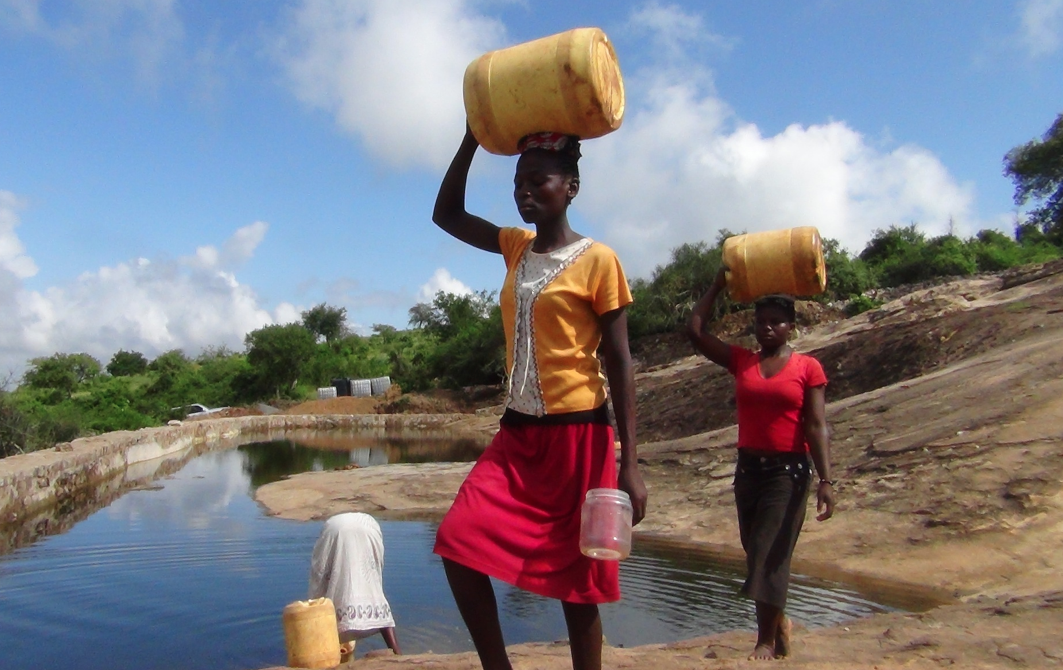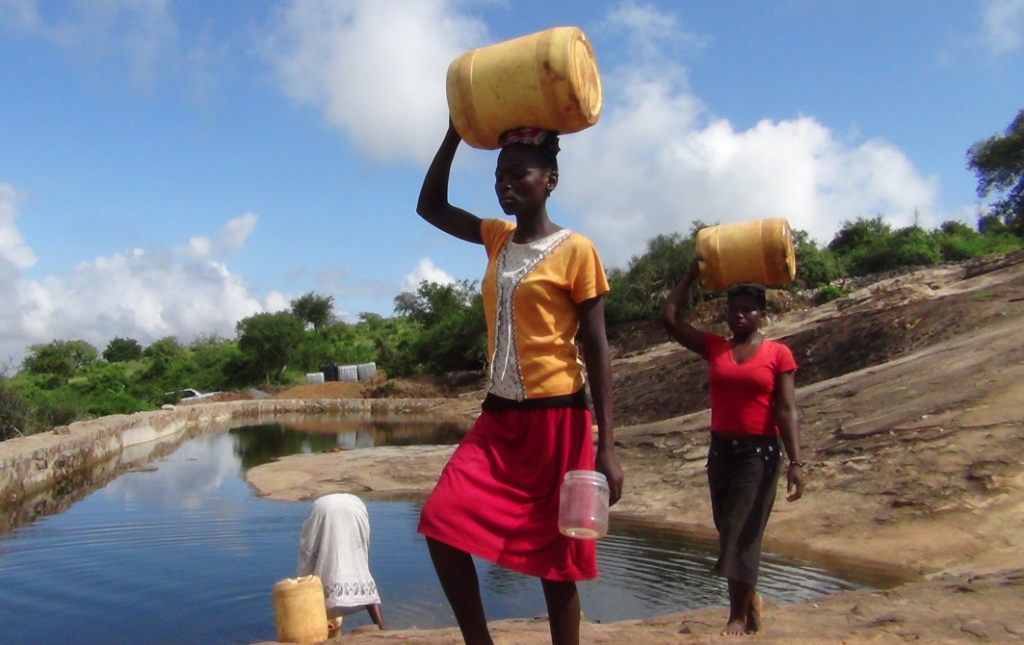A new way of funding climate change projects at the local level is giving women more say over the use of precious resources

Sitting a couple of kilometres outside the village of Wajir-bor in northeast Kenya is something quite rare for these dry parts: a small, well-maintained reservoir full of water with a watchman standing guard at the gate.
A dam was constructed here after the Wajir County Assembly passed a climate change act in 2016, one of the first in Kenya, freeing up government funds for projects chosen by local people.
The people of Wajir-bor, 40 km (25 miles) west of the border with Somalia and inhabited mainly by the Degodia clan of the Somali ethnic group, decided on the water pan, which provides water for domestic use and for livestock to drink.
With the money, they also installed a water tank and a diesel generator to pump water into an animal trough, and fenced off the shallow reservoir to keep it clean.
Wajir’s Climate Change Fund, set up through the act, is resourced with 2 percent of the county’s development budget. The money is set aside for efforts to adapt to climate change impacts such as worsening drought.
The fund can also harness finance from international sources, and has received about 62.7 million Kenyan shillings ($606,000) from the UK government.
Wajir residents have chosen community members to represent them on the local adaptation committees that shape the projects, with women making up at least a third.
This system gives a voice to ethnic Somali women who are traditionally excluded from leadership roles in their patriarchal communities, experts say.
In Wajir-bor, five of the 13 committee members are women. A water users association was also established, led by an elected board of 12, including three women whose job it is to manage the water pan on a daily basis.
WOMEN DECIDE
Ahmed Abdi, CEO of Arid Lands Development Focus Kenya (ALDEF Kenya), said women now have a chance to influence decisions that affect their livelihoods, particularly on issues of grazing pastures and water.
“Traditionally, women only had more say when there was water scarcity,” said Abdi. “It is then they can decide that the little water that is available near the homestead will not be used for livestock but for domestic use.”

